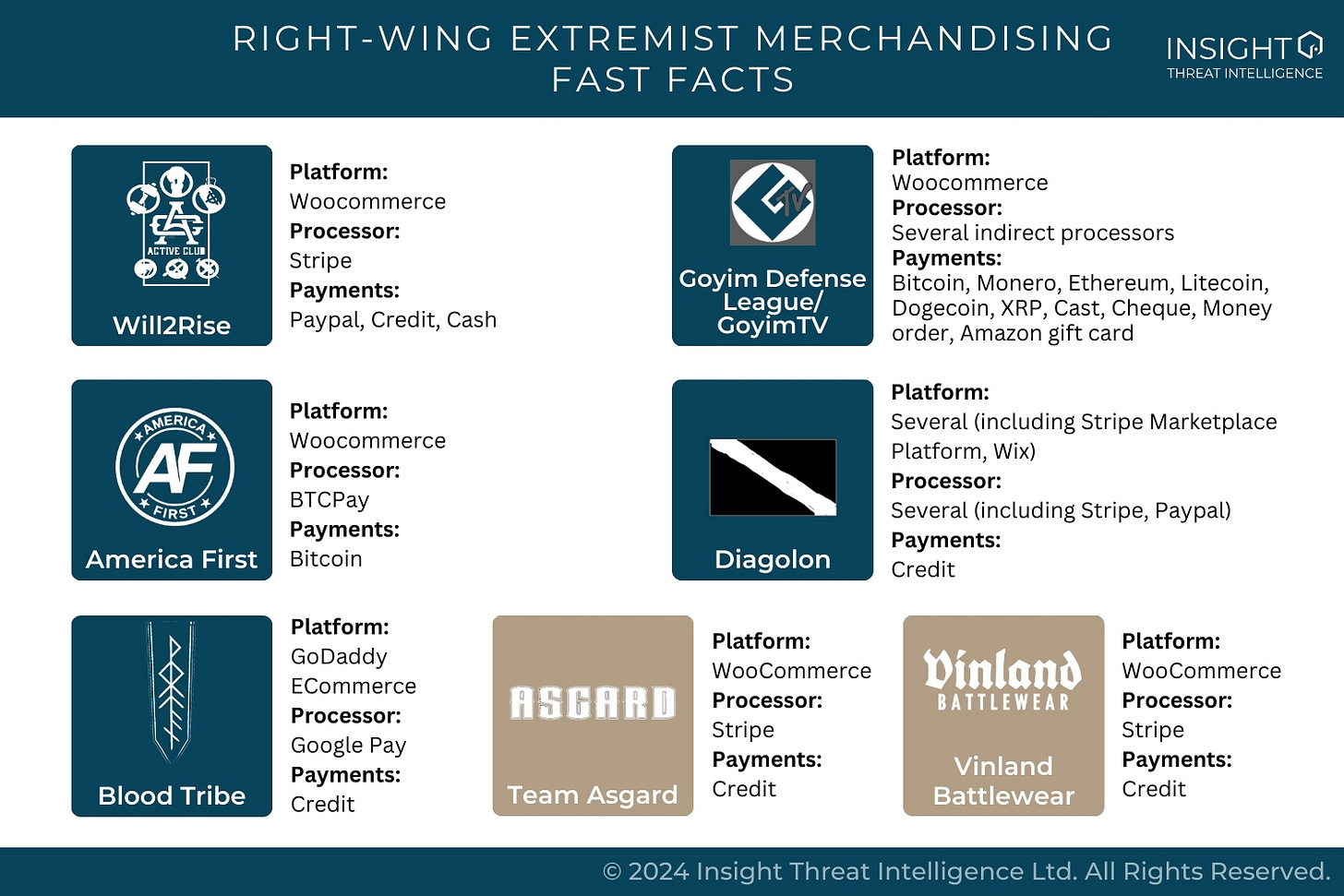Hello Insight Monitor subscribers, and welcome to another edition of our newsletter. Today, we’re looking at how extremists finance their activities and propaganda through merchandise sales. I’m also happy to report that our intrepid newsletter has almost 6,000 subscribers, so please keep sharing and push us over that milestone. Further, the launch of our course on Financial Intelligence Fundamentals has gone well, with many students signing up. The first cohort will likely finish sometime next week, and we’re looking forward to the feedback. In the meantime, we hope you enjoy this analysis.
Extremists believe the success or survival of an in-group (most often their own) can’t be separated from “the need for hostile action against an out-group.” (JM Berger’s definition from 2018). As readers of this newsletter certainly know, extremist movements often resort to covert processes to finance actions against out groups. However, this isn’t necessarily the case for far-right extremists. Instead, many far-right extremist groups in North America (a subset of ideologically-motivated extremists) benefit from the overt sale of their merchandise.
While the public nature of the sale of far-right extremist products is by no means a secret, book sales, in particular, have been especially recognized in recent months due to the controversy surrounding Rupaul Charles’ drop-shipping site Allstora. While Charles said the secondary retail website would be “all-inclusive,” reports quickly emerged about far-right literature being included on the platform, including favourable translations of Mein Kampf and the Turner Diaries. At the time of writing, Allstora provides a platform for books sales by many far-right extremist groups, including the Cosmotheist Church (a white supremacist church founded by Turner Diaries author William Luther Pierce),1 publishers in the Order of Nine Angles, and the infamous neo-Nazi publishing company Antelope Hill.2
Of course, far-right extremist groups’ capacity to enrich themselves through the online shopping habits of supporters is by no means limited to book sales. (It’s not even limited to selling their merchandise, as Proud Boys’ chair Enrique Tarrio claims to have sold pro-Black Lives Matter attire to divert payment processor’s suspicions.) Far-right extremist groups also sell clothing, accessories, décor, music, and more. While many of these sales are direct, independent labels with links to white power groups also likely play a role in financing. A notable example is Midgard, associated with the Nordic Resistance Movement, and a retailer of white power music, merchandise, and books whose customer data was publicly leaked in December by Anti-Fascist Action Stockholm. In a preface to the leak, Anti-Fascist Action Stockholm describes Midgard as having “actively participated in and financially supported several Nazi organizations.”
Today, we’ll be looking at how five far-right extremist groups and two clothing brands with ties to far-right extremist groups raise funds through online sales. While these groups and brands are only a drop in the ocean in the vast ecosystem of far-right E-Commerce, they provide insight into how these outfitters typically operate.
Do you want to learn more about financial intelligence and how to use it in research, investigations, and analysis? Our financial intelligence fundamentals course is for you! Launching 2 July 2024, this course is perfect for people new to financial intelligence and seasoned professionals. Enroll today!





